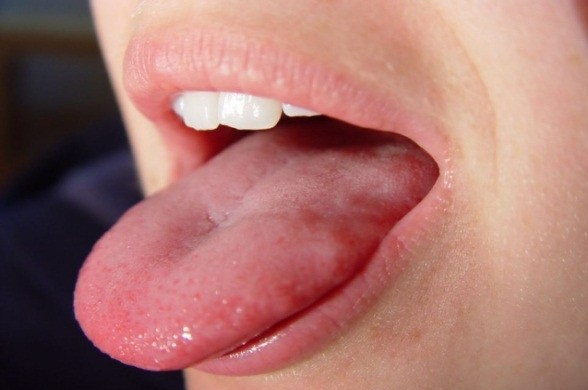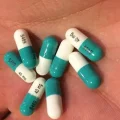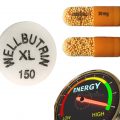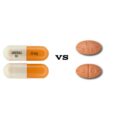Adderall is a brand name for the combination of dextroamphetamine and amphetamine. It’s a prescription drug used primarily to treat ADHD or narcolepsy (daytime sleepiness). The medication alters certain naturally-occurring chemicals in your brain by enhancing the effects of neurotransmitters such as dopamine and norepinephrine.
For ADHD, Adderall is designed to improve hyperactivity, impulsive behavior, and attention span. According to the Cleveland Clinic, stimulants like Adderall improve symptoms of ADHD in 70 to 80 percent of children, and in 70 percent of adults. The positive effects can be even greater when it’s used along with behavioral therapy.
Adderall comes in either a tablet form or as a time-release capsule. It can interfere with sleep, so it should be taken in the morning. Your doctor will most likely start you off with a low dose to make sure you can tolerate it. Then, the dose can be slowly increased.
How Adderall works
The exact mechanism of how Adderall works is not fully understood, but it is believed to affect certain neurotransmitters in the brain, namely dopamine and norepinephrine. These neurotransmitters play a role in regulating attention, focus, impulse control, and hyperactivity.
- Dopamine: Adderall increases the release of dopamine, a neurotransmitter associated with pleasure, reward, and motivation. By increasing dopamine levels, it can help improve attention, motivation, and feelings of alertness.
- Norepinephrine: Adderall also increases the release of norepinephrine, a neurotransmitter involved in the body’s stress response and arousal. This can enhance focus, attention, and wakefulness.
By affecting dopamine and norepinephrine levels, Adderall helps to regulate the activity and communication between different regions of the brain involved in attention and impulse control.
It’s important to note that Adderall is a stimulant medication and can have both therapeutic effects and potential side effects. The medication should only be used under the guidance and prescription of a qualified healthcare professional. They will determine the appropriate dosage and monitor its use to ensure safety and effectiveness.
What is an Adderall tongue?
Adderall tongue refers to an allergic reaction to Adderall which results in the swelling of the tongue, throat, or face. Studies have shown that people taking stimulants like Adderall may notice bruxism (teeth grinding and clenching) and a decrease in saliva, resulting in dry mouth (called xerostomia). These side effects do not affect everyone, but for those who find them bothersome, there are ways to manage these problems.
The adderall tongue can vary in severity and may involve symptoms such as swelling, hives, difficulty breathing, or a rash. If you or someone you know experiences any signs of an allergic reaction, it is crucial to seek immediate medical attention. Call emergency services or go to the nearest emergency room for prompt evaluation and treatment.
It is important to note that allergic reactions to medications should be taken seriously, and any suspected allergic response to Adderall should be reported to a healthcare professional. They can evaluate the situation, provide appropriate medical advice, and determine if an alternative medication or treatment plan is necessary.
How To Get Rid Of Adderall Tongue
There are several remedies you can use to relieve discomfort from Adderall tongue while waiting for emergency help they include:
Drink water: Sipping water and staying hydrated can help relieve dry mouth associated with the Adderall tongue. Studies have found that dehydration may be a factor in dry mouth. Increasing your water intake can help treat mild dehydration.
Avoid caffeine: Caffeinated beverages can be dehydrating. Studies have found that drinking caffeinated coffee or tea causes dry mouth and can complicate symptoms of Adderall tongue.
Limit alcohol use: Alcohol may dehydrate, which can contribute to dry mouth. When experiencing dry mouth from Adderall tongue, try drinking water instead of alcohol. Interestingly though, alcohol use isn’t a proven risk factor.
Don’t smoke: Smoking tobacco can also dehydrate. Cutting down or quitting may reduce dry mouth symptoms. A 2014 study found that smoking increased dry mouth issues.
Try sugarless gums and candies: Sucking on a sugar-free candy may provide some short-term relief from Adderall tongue. This includes products like cough drops, lozenges, or other candies. Sugar-free gum can also provide short-term relief from dry mouth. Also, some gum contains xylitol, which helps stimulate saliva production.
Avoid breathing through your mouth: If you have an Adderall tongue, mouth-breathing can make dry mouth worse and cause other oral health problems. Try breathing through your nose more often than your mouth, especially when experiencing any dry mouth discomfort.
What are the other side effects of Adderall?
Adderall, like any medication, can cause side effects. Not everyone who takes Adderall will experience side effects, and the severity and occurrence of side effects can vary from person to person. It’s important to note that the following list is not exhaustive, and you should consult with a healthcare professional for a complete understanding of potential side effects. Common side effects of Adderall may include:
- Nervousness or restlessness
- Headache
- Insomnia or difficulty sleeping
- Dry mouth
- Decreased appetite or weight loss
- Increased heart rate
- Increased blood pressure
- Gastrointestinal disturbances (e.g., stomach ache, nausea, vomiting, diarrhea)
- Dizziness or lightheadedness
- Mood swings or irritability
- Blurred vision
- Sweating
Less commonly, but potentially more serious side effects may include:
- Allergic reactions (such as difficulty breathing, hives, or swelling of the face, lips, tongue, or throat)
- Increased blood pressure or heart rate (may be concerning for individuals with pre-existing cardiovascular conditions)
- Mental health changes (such as worsening of existing mental health conditions or the onset of new symptoms)
- Raynaud’s phenomenon (reduced blood flow to extremities, resulting in cold, numb, or painful fingers or toes)
- Priapism (a prolonged and painful erection that can occur in males)
It’s essential to inform your healthcare professional about any side effects or concerns you experience while taking Adderall. They can provide guidance, monitor your response to the medication, and adjust the dosage or consider alternative treatments if needed.






